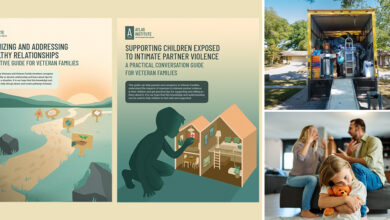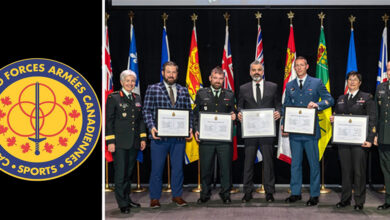Health and Wellness
Connecting suicide and wellbeing at CIMVR roundtables
Over the last few years, the Canadian Armed Forces (CAF), veterans organizations, and Canadian society as a whole has made significant strides in understanding and promoting mental health.
However, experts believe that as a society, there is still a long way to go when it comes to understanding and preventing suicide.
To begin understanding suicide and creating a prevention strategy, the Canadian Institute for Military and Veteran Health Research (CIMVR) has hosted a roundtable for the last two years on suicide prevention.
It’s about starting a dialogue on suicide and suicide prevention. I think that’s an important step for everyone. For all the progress we made in mental health in the last year years, suicide is an area were’ not talking about and not understanding enough as a community Dr. David Pedlar, CIMVHR’s Scientific Director
Because suicide prevention is a complex issue that affects a large number of people, the roundtable included experts from various sectors that serve the military and veteran population. The roundtable focuses on creating a multifaceted strategy with a number of partners.
“While government and service providers have an important role, best practices in the area of suicide prevention talk about a whole of community approach. That means we have to get everyone around the table to, first of all, better understand suicide, but there’s a role people in the veteran community can play,” noted Pedlar.
The first CIMVHR roundtable on suicide was held in 2017 and focused on sharing evidence and listening from the community, veteran’s representatives, and veteran-run organizations about their needs.
The second roundtable was held in May 2018 and focused on what suicide prevention efforts are taking place in the community right now.
“One thing that really struck me was the level of engagement. There is a real interest across the community, not just among the professionals, but among veteran organizations to talk about suicide and play a role in preventing it,” commented Pedlar.
The conversations aren’t merely about suicide and suicide prevention but about thoughts of suicide or suicide ideation.
Although suicide is rare, thoughts of suicide are much more common and can be as high as 10-15 per cent in certain groups, according to Pedlar.
“Suicide is relatively rare, but they have a ripple effect, and they affect us all,” said Pedlar.
From discussions at the roundtable, experts have determined that suicide prevention is not just about mental health, although it is a factor. Many times it’s about a trajectory that individuals are put on that involves many domains including physical health, employment, finances, whether they social support and even whether they have housing.
Therefore, a significant outcome of the roundtable discussions is to promote an understanding between suicide and its connection with wellbeing.
Experts have also determined that for this specific group of individuals, military members, and veterans, transitions can be a venerable time for many already on the suicide trajectory.
Additionally, the roundtable discussions also focus on support for people in the aftermath of a suicide.
Thanks to the information collected from the last two roundtables, CIMVHR is now looking to share best practices across the community so that organizations can have all the tools at hand to prevent suicide.
This can mean looking in to how social media could be used to identify individuals at risk for suicide and determine how organizations and associations can play a stronger role in suicide prevention.
By working together, starting a dialogue, and sharing information, the hope is that more lives can be saved in the veteran and military community.
“It’s not just about mental health conditions, we need to take a broader look at the life course and how we can support people so that they’re less likely to get on suicide trajectories and when they are we’re able to identify and play a broader role in providing the support they need,” said Pedlar.











